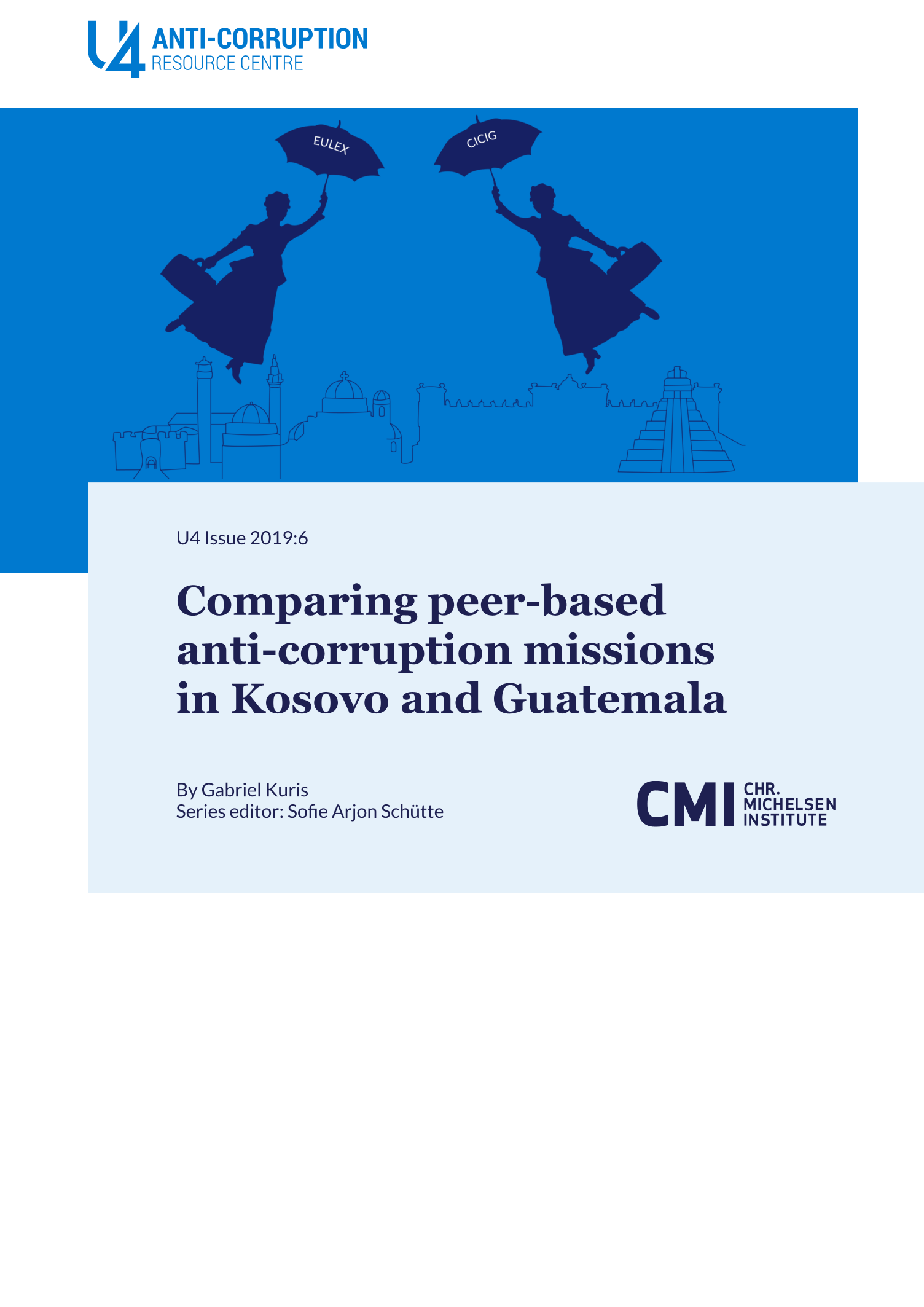Main points
- Kosovo and Guatemala are hindered by hidden corruption networks tied to transnational crime that grew powerful during their respective civil wars.
- To address those corruption issues, the international community created the International Commission against Impunity in Guatemala (CICIG) and the European Union Rule of Law Mission in Kosovo (EULEX), empowering foreign legal experts to augment and assist local authorities.
- Both missions had dual roles of directly investigating and addressing corruption and organised crime, as well as building local capacity through peer-based learning.
- CICIG had fewer powers and resources than EULEX, yet faced greater challenges.
- However, CICIG generally surpassed expectations while EULEX fell short, as indicated by outcomes like high-level convictions, polled public trust, and assessments by scholars and international organisations.
- This divergence in outcomes can be partly attributed to political, cultural, and legal factors.
- Strategy and focus mattered. CICIG leaders succeeded when they doggedly pursued the mission of disrupting corruption networks, while EULEX leaders did not when they diverted attention to competing objectives and indefinite projects of state-building.
- CICIG fostered more peer learning than EULEX because it was structured to encourage collaboration between foreign and local partners on joint investigations and reform efforts. Working with a specialised counterpart office over a dozen years, CICIG built a legacy of institutional knowledge and relationships of trust.



